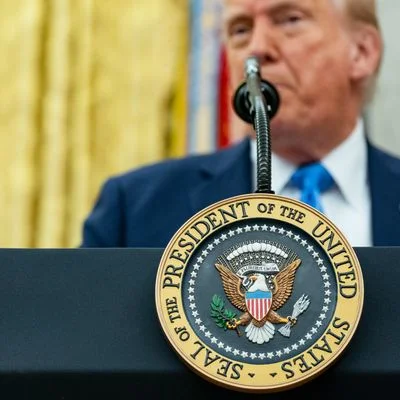
Trump’s Third Term Ambition Sparks Constitutional Debate
Former President Donald Trump has ignited a significant political debate by expressing his intention to run for a third term, challenging the 22nd Amendment of the U.S. Constitution. This amendment, ratified in 1951, limits a president to two terms in office. Trump's announcement has led to widespread discussions across various media platforms, including The New York Times, The Washington Post, The Guardian, and NPR, about the legality and implications of such a move.
Reactions to Trump's statement have been mixed. Some supporters argue that the amendment should be revisited, citing historical precedents and the need for strong leadership in challenging times. Critics, however, emphasize the importance of adhering to constitutional limits to prevent the concentration of power and maintain democratic principles.
The debate has also extended to international news, with some outlets drawing parallels to political developments in other countries, such as Myanmar, where recent events have highlighted the fragility of democratic institutions. As the U.S. grapples with this constitutional question, the outcome could have far-reaching effects on the nation's political landscape and its commitment to democratic norms.
Related issues news
Can a US president have a third term?
No person shall be elected to the office of the President more than twice, and no person who has held the office of President, or acted as President, for more than two years of a term to which some other person was elected President shall be elected to the office of the President more than once.
Which US president served three terms?
Roosevelt won a third term by defeating Republican nominee Wendell Willkie in the 1940 United States presidential election. He remains the only president to serve for more than two terms.